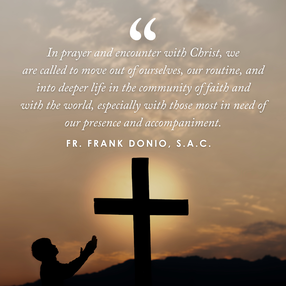 “When we become creatures of habit and grow bored, and the mission becomes a ‘job’, it is time to open our hearts to that second call of Jesus, for he never stops calling us. He calls us to make us set out; he calls us to remake us. Do not be afraid of this second call of Jesus.” - Pope Francis, Homily for Vespers with Bishops, Priests, Deacons, Consecrated Persons, Seminarians, and Pastoral Workers, World Youth Day, Lisbon, Portugal, August 2, 2023 Many people who read our newsletter engage in some type of ministry within the Church, full-time or part-time. Others engage in various types of apostolic work. All are serving the mission of Christ and the Church, each in the way in which they are called. Sometimes, as Pope Francis points out, “mission becomes a ‘job.’” We may need to recognize a “second call of Jesus.” He calls us to himself most profoundly in the Eucharist, whether at Mass or in adoration. In prayer and encounter with Christ, we are called to move out of ourselves, our routine, and into deeper life in the community of faith and with the world, especially with those most in need of our presence and accompaniment. Each of the reflections below given by seven bishops, including the President of the United States Conference of Catholic Bishops, Archbishop Timothy Broglio of the Archdiocese for the Military Services, is not simply for the time of World Youth Day. They are quite relevant to all on mission for Christ as we commit ourselves daily to living for him. We invite you to listen to them as part of your time of prayer or as you journey to others on mission. May the Charity of Christ urge us on! In Christ, Apostle of the Eternal Father, Fr. Frank
0 Comments
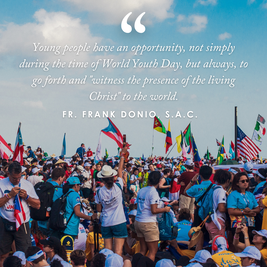 The theme for World Youth Day 2023 is “Mary arose and went with haste” (Lk 1:39). This celebration is not simply for those who go to Lisbon, Portugal, but also for all young people and those who work with them. It is an invitation, an opportunity, to enter into a spiritual and evangelizing experience. As the official website for World Youth Day 2023 remind us: “ “Leaving in haste represents the attitude depicted in Pope Francis’ indications for WYD Lisbon 2023: ‘may young people’s evangelization be active and missionary, for this is how they will recognize and witness the presence of the living Christ.’” “Leaving in haste” means that young people and all the baptized are called to go forth and witness Christ. Staying only where we are and with people with whom we are comfortable can result in our becoming complacent in our spiritual lives. We need to be missionary, including in our prayer. Is our prayer simply about ourselves or do we take the example of the Blessed Mother and be less concerned about ourselves and more concerned about others and doing the will of God? She left in haste to go to her cousin, Elizabeth, who in her advanced age was pregnant with St. John the Baptist. The main announcement of the Archangel Gabriel to the Blessed Virgin Mary was that she also was pregnant, but in a miraculous way by the Holy Spirit, carrying the Savior of the World, Jesus Christ. Instead of dwelling on her own situation, she went forth bearing Christ to Elizabeth whose child leap in the womb for joy! When we bear Christ to others – when we witness Christ – some may reject us, but others will receive us with joy. Their joy is not about us, it is about Christ. Young people have an opportunity, not simply during the time of World Youth Day, but always, to go forth and “witness the presence of the living Christ” to the world. May the Charity of Christ urge us on! In God, the Infinite Love, Fr. Frank “I am the servant of the Lord, may it be done to me according to your Word.” (Luke 1:38)
This passage from Mary’s fiat was the theme of this year’s World Youth Day (WYD). World Youth Day 2019 took place from January 22-27 in Panama City, Panama, where it gathered hundreds of thousands of young people from all over the world to share in the faith, culture, and joy of the Catholic Church. WYD is a pilgrimage for young people that includes times of reflection and prayer that often results in lifelong shared experiences with other people. Many people, myself included, couldn’t make such an international pilgrimage this year. Instead, I joined over 1,500 young adults from 20 different dioceses in the US for Panama in the Capital at The Catholic University of America in Washington, D.C. A stateside gathering like this is intended to carry the spirit of World Youth Day to people much closer to home, while also modeling the solidarity of the Catholic faith with those around the world who gather in God’s name. The Catholic Apostolate Center was asked to be a co-host and platinum sponsor of the event. Our role in Panama in the Capital helped the Center live out part of our mission of spreading the Gospel and increasing the awareness of the importance of young adults and their faith journeys within the Church. For us, it is as simple as Pope Francis said during the close of WYD: “You, dear young people, are not the future but the now of God. He invites you and calls you in your communities and cities to go out and find your grandparents, your elders; to stand up and with them to speak out and realize the dream that the Lord has dreamed for you.” For the Church, the importance of evangelization through the current generation of young people is critically important for the vitality of the Church in the present and for the cementing of the future of the Church. We were fortunate to have our Director, Fr. Frank Donio, S.A.C. give a presentation on how to lead as a Christian. Various staff were present to cover the event digitally for pilgrims. Our staff were asked to serve as Masters of Ceremonies during the event at the St. Vincent Pallotti Stage, and so Blog Editor Kate Fowler and Administrative Associate Brian Rhude volunteered their talents to welcoming presenters and musicians alike to the stage throughout the whole event. We were able to exhibit and provide resource materials for people in the area, as well as share in the general excitement of the event. Monica Thom Konschnik, the Center’s Assistant Director of Administration, had been working with the event’s planning team for 18 months when we finally all gathered together to celebrate. Fr. Frank was able to give some remarks to the gathered attendees for the Vigil Mass and also served as a concelebrant for the Mass. In the evening, staff were invited to assist in the candlelight Stations of the Cross in the Crypt Church in the National Shrine of the Immaculate Conception, with Archbishop William E. Lori, Archbishop of Baltimore, presiding. It was a wonderful event that was reminiscent of what happens at World Youth Day with the Holy Father. All in all, our young adult staff was present and contributed to this event with a sincere appreciation of the Church in its mission to evangelize. We were honored to make this international event more accessible to young people locally and pray that this experience helped many encounter Christ and celebrate the joy and wonder of World Youth Day. Questions for Reflection: What is your experience of World Youth Day? How can you show solidarity with those present at WYD within your local community? To learn more about WYD, please click here. World Youth Day (WYD) is so much more than an international get-together with the pope. Too often, global experiences of faith get overlooked or underestimated; other times, since these gatherings have taken place now for four decades, they are simply taken for granted within the Church. But such oversight would be a missed opportunity for everyone in the Church and around the world. Why should we care? Three simple words: World. Youth. Day. Let me explain: World The first reason is that WYD is truly meant for the whole world. While young adults heading to Krakow in July are the primary protagonists of this particular international gathering, the message of WYD applies to everyone – everywhere. In fact, thanks in part to the growing accessibility of technology and social media, this pilgrimage is not limited to those who have the means to travel overseas. There are millions of young adult Catholics in the United States who can engage in WYD – through local stateside events in their parish, campus, or diocese, as well as through social media and digital communications. The U.S. bishops and pilgrim leaders in Krakow will be engaging directly with stateside and digital pilgrims this year so that those at home in the United States are as much a part of the pilgrimage as those who boarded a plane bound for Poland. No one is excluded – and that message is exactly what WYD offers the rest of the world. One of the frustrations many people experience during these international displays of faith is feeling left out, or feeling like they don’t matter. WYD is a chance for pilgrims to share in real time on social media a message of mercy and love that’s available to all. This message is meant not just for Catholics, Christians, or Krakow pilgrims; it is meant for the world. Youth There are many times when I get asked about “the kids” at WYD, and often, this feels like a dismissal – that this global experience is somehow just a “giant youth rally” not needing to be taken seriously. Such thinking is exactly why Pope St. John Paul II established the practice of WYDs: to remind the world that a gathering of young people is essential to the vibrancy of the Church and the transformation of the entire planet. Even more, there is a significant misconception about WHO this gathering is intended for. The name alone can be misleading. The “youth” in the WYD title is actually mistranslated in English. The target audiences for these international pilgrimages are “young adults.” That is, those in their late teens, twenties, and into their thirties. In 2016, the majority of U.S. pilgrims range from ages 18 to 30, and most diocesan groups are taking young men and women in their 20s and 30s, single and married. In other words, they aren’t “kids.” This news is actually incredibly refreshing, considering that young adults are one of the most disconnected groups of people from the Catholic Church and the practice of the faith. Around the United States, studies show that only 17% of millennial Catholics attend church weekly, and over one-third of young millennials have no religious affiliation whatsoever. To know that thousands of young adults from the U.S. are going to Krakow, and even more are engaging stateside or digitally, is one of the most important things that Catholics can celebrate this month. Let’s work to create local communities open to their enthusiasm so that returning pilgrims can engage in the life of the Church. Day It can be easy to dismiss WYD as a “Catholic Woodstock” – a one-time festival over the course of a few days when the pope and millions of young people gather together in a large open field to pray and talk about God. But again, there is so much more. WYD is not a “day” at all – but a pilgrimage. It includes months or years of spiritual and practical preparation, leading into years of follow-up work: putting into practice the message of WYD and the lessons learned along the way. One could compare this experience to a mountaintop journey. The events in Krakow or stateside are just the peak. And mountains are more than their highest summits. Too often, especially in the twenty-first century, we jump from one major task to the next, hardly stopping to slow down. Sometimes WYD is reduced to another task or event in a long line of trips, events, or papal visits. Many WYD pilgrims know that the journey is so much more than that. For some, WYD inspired them to their life’s calling: to marriage, to religious life or to the priesthood, to their careers, or to simply being an active adult Catholic. WYD is a catalyst for great things yet to come. This is just one reason why I encourage people to pay attention to WYD and what might emerge from the pilgrims who return home, and who will rise to the occasion. In a world torn apart by violence, polarization, and fear, let us heed the value of a lifelong pilgrimage: a process of accompaniment that requires time, patience, compassionate listening, and understanding – things often lacking in our world today. It can be tempting to excuse ourselves from caring about or thinking about WYD, dismissing it for one reason or another. Yet this is a moment of grace for everyone – from the pilgrims to the rest of the world. For one week, the Church turns its attention to this special encounter. Let’s not let this moment pass us by or excuse ourselves from paying attention. The world, especially in uncertain times and the face of tragedy and unrest, is in need of the graces that can come from WYD. It is meant for the world. It can be a mountaintop of the Catholic young adult experience. Let us pray that the end results can help heal, transform, and bring mercy and compassion into a world torn apart and hurting. To learn more about World Youth Day, please click here. *This post was originally published for our World Youth Day series on July 20, 2016
Before any major event, we need to prepare. A student needs to study for an exam. A runner must practice before running a marathon. A bride and groom plan out the intricate details of a wedding day. A mother and father decorate the nursery before their baby is born. As you anticipate the festivities of World Youth Day (WYD) 2019, you must also prepare yourselves spiritually for the event that is about to take place. You need to get yourself into the right mindset in order to be open and to fully experience all that WYD 2019 will have to offer, whether you are traveling to Panama, attending a stateside event, or participating digitally. We are preparing to: Encounter, Accompany, Live Community, and Send! Encounter There are many ways in which leaders and pilgrims alike will experience the act of encounter when they are participating in a World Youth Day celebration. The most important encounter that leaders or pilgrims will experience is the encounter with Jesus Christ. We are able to encounter Jesus Christ through the Sacraments, through scripture and prayer, through service, and through our relationships with others. The WYD experience provides for ample opportunities for the encounter with Jesus Christ particularly through Masses, catechesis sessions, and through building and developing relationships with your fellow pilgrims and leaders. Accompany As a pilgrim, you will need to accompany your fellow pilgrims during this journey. Be there to support and encourage each other on the road. The act of accompanying furthermore requires a pilgrim leader to maintain a delicate balance of not only providing support and encouragement, but also allowing your pilgrims to encounter Jesus Christ in their own way. You need to be there to support your pilgrims, but you also need to let them figure things out themselves. But you are not doing this alone. As a leader, you are accompanied by your pilgrims, your parish, your diocese, your community, your family, all of those also participating in WYD2019, and the Church as a whole. For leaders and pilgrims alike, one important thought to keep in mind about the act of accompanying is that you need to meet people where they are. You cannot expect anyone to be exactly where you are on the journey due to everyone’s different life stories and challenges. Pray for an openness to support those around you in the way they need best. Your accompaniment can lead others into deeper life in Christ in and through the community of faith, the Church. Live Community Nothing that we do as Catholics is done simply alone. We are in relationship with God, the communion of the Most Holy Trinity. We are part of the community of faith that we call the Church. The point of common bond with one another no matter where one is from at WYD2019 events is rooted in this community. We move beyond simply ourselves and into deeper communion with the global Church. “Fellowship and communion with one another in the community of faith is also a reflection of the Trinity” (Living as Missionary Disciples: A Resource for Evangelization, 16). You as leaders and pilgrims need to live community deeply during the time of WYD2019. It is not simply a trip, but an opportunity to more fully encounter Christ in the community of faith. While we are always rooted in community, God also sends us forth on mission to a world that needs our witness of the love and mercy of Christ, especially after WYD2019. Send World Youth Day 2019 isn’t over on January 27, 2019. It continues on through your experiences and your enthusiasm long after your flight has landed back from Panama or you have returned home from your local stateside event. You must share your stories with your friends and those in your parish to enliven them with the gift of the Holy Spirit that you received at your event. You must continue on the journey as a missionary disciple. As Pope Francis tells us in Evangelii Gaudium, “Every Christian is a missionary to the extent that he or she has encountered the love of God in Jesus Christ: we no longer say that we are ‘disciples’ or ‘missionaries’, but rather that we are always ‘missionary disciples’” (120). Once we experience the great love of Jesus Christ, we must go forth and share that good news with those around us. We are inspired by the example of Pope Francis as well as the patron saints of World Youth Day to do so. We invite you to continue to prepare for this journey on which you are about to embark. Take a look at the USCCB’s World Youth Day page and the Catholic Apostolate Center’s World Youth Day Portal. Read through the guides for stateside pilgrimage leaders and for international pilgrimage leaders for more about Encounter, Accompany, Live Community, and Send.
“Dear young people, let yourselves be taken over by the light of Christ, and spread that light wherever you are.” Pope St. John Paul II’s words to the participants of World Youth Day 2002 in Toronto are as true now as they were over fifteen years ago. As the Church prepares for a Synod of Bishops to discuss Young People, the Faith, and Vocational Discernment, Pope St. John Paul II’s words are a great call to prayer. The Synod of Bishops was established in 1965 by Bl. Pope Pius VI (who will be canonized during this year’s Synod) to meet whenever the current pope deemed it necessary or opportune to gather the world’s bishops to discuss important matters within the Church. Before the October 2018 Synod, the most recent synod will have been the 2014 Extraordinary Synod that was called to discuss the topics of family and evangelization, out of which came Pope Francis’ exhortation Amoris Laetitia, the Joy of Love. This Synod has been called by Pope Francis and is the 15th Ordinary Synod of Bishops. The Instrumentum Laboris, or the working document for the Synod (available here) was created after listening to groups of young people from all backgrounds, ethnicities, and geographic regions. It discusses important topics, like what it means to be a young person today, accompaniment, vocational discernment, evangelization and our universal call to follow Jesus. Even after the publishing of the Instrumentum Laboris, Church leaders will continue to gather young people across the world to listen to them on these important issues to decide how best the Church can move forward. These are serious matters facing the Church, especially our Church here in the US, as vocations to the priestly and religious life seem to continue to decline and Church attendance dwindles. As a student at The Catholic University of America (CUA), I feel that there is great hope in this generation. You need not look further than the on-campus Masses and weekly Adorations to see that the Holy Spirit is moving within our youth. Yes, the small student body of CUA is surely not indicative of the entirety of young people in our country—but if you look to other Catholic institutions and talk with high school ministers, youth ministers, and religion teachers, there’s reason for optimism. This summer, I was a counselor for Light the World, a summer institute organized by CUA’s School of Theology and Religious Studies. I was blessed to minister to about fifty high schoolers from across the country. While fifty might not seem like that big of a number, it was a sampling of the young people who are looking for Christ in their lives, a sampling that gets bigger and bigger when you add programs like the Steubenville Conferences, Life Teen camps and events, and other independent conferences and events (not to mention World Youth Day!). It is through the witness of young men and women like the ones at Light the World that we can find hope in times so desperately in need of it. In my experience, I have seen that this is a generation being moved by the Holy Spirit. We are grateful that the Church is inviting young people to share their thoughts, ideas and experiences, and pray that she will use what she learns to create a stronger and more unified Church moving forward. The optimism of our young people is a call to prayer and action, both on the part of our Bishops and clergy and that of the laity. Let us look to our great saints who had devotion to young people, like Pope St. John Paul II and St. Vincent Pallotti, as our guides in order to see the Church grow and flourish in the good works that Christ has called her to. Our youth can also look to young saints such as Bl. Pier Giorgio Frassati and St. Maria Goretti as inspirations of holiness to help guide them closer to Christ. This Synod will be a good first step in figuring out how the Church can better accompany and encourage its young people to be saints, but it cannot be the final step. In the coming months, more writings and documents will come out of the Synod, pastoral plans and diocesan initiatives will emerge, and new ways of ministry and accompaniment will come. It is through prayer that the Synod and the resulting actions will bear good fruit; and it is in Christ alone that we will find our hope. During this momentous time in our Church, let us pray for our young people, for an increase in holy vocations, and for the will of God to be done. For more information on the upcoming Synod, please click here. Editor's Note: In honor of the second anniversary of WYD Krakow (2016) and in anticipation of WYD Panama (2019), we are reposting this wonderful reflection from WYD 2016 on the role of young people in the Church.
Who was it that claimed the Church is irrelevant to young people? Who was it that claimed young people did not seek or yearn for Christ? My experience of World Youth Day (WYD) has shown me otherwise. WYD is the largest gathering of Catholic young adults in a series of events sponsored by the Church. First initiated by St. John Paul II in 1985, WYD is celebrated at the diocesan level annually and at the international level every two to three years at different locations around the world. People do not attend as tourists, but rather as pilgrims, since the nature of the composite events are religious in character. Typically, pilgrims will arrange lodging in the host city before participating in the opening ceremonies, catechesis, and cultural exhibitions. Taking advantage of all the host city has to offer, pilgrims will usually also spend time exploring the region (especially churches), shopping for religious souvenirs, and tasting the local cuisine… and very rarely alone! As the locals are quick to notice, the host city will be absolutely inundated with pilgrim groups, each identified by various flags, shirts, and chants. In spite of the inconveniences experienced (such as crowds, traffic, and long lines), for the most part, the locals are excited to greet so many peoples; local businesses are especially happy to cater to the pilgrims’ needs. The focus of WYD events centers around the arrival of the pope: everyone wants to hear what the Holy Father has to say to the young pilgrims at various sites and events. Traditionally, the Holy Father will address crowds from his residence, during Masses, Stations of the Cross, and the overnight vigil during which millions camp out together in prayer. The conclusion of the Vigil Mass the following day signals the end of the official WYD program, though at that time the next host city is formally announced. I’ve been blessed to have been able to attend two World Youth Days, in Rio de Janeiro, Brazil in 2013 and in Kraków, Poland this year. So much more than a sightseeing trip, WYD for me has been all about seeing how God’s love for us manifests itself in each culture. Encountering millions of young believers (in addition to curious observers) who are inherently joyful in their witnesses to the Lord, I am especially delighted to see them interact with each other through songs, chants, prayers, and games during scheduled events or out in the streets. For me, some of the most powerful witnesses given happened outside of the official program (though seeing millions kneel before the Blessed Sacrament with lit candles during the vigil was indescribably moving). I remember seeing a group of Italian pilgrims run over to help a local disabled man carry groceries up a number of street stairs; another group immediately rushed to comfort a female pilgrim who had broken down during our 12 kilometer (about 7.5 miles) hike from the site of the overnight vigil. Simple acts of love like that really touched me as being authentically Christian: to love in even the smallest matters and, by doing so, answering the call given at the end of Mass, “Go in peace to love and serve the Lord.” Pope Francis gave many beautiful and encouraging addresses to those assembled in Poland, but I was most impacted by an action of his. At the beginning of Mass at the great Shrine of Czestochowa, Pope Francis missed a stair step and fell, thankfully uninjured. He later explained that, "I was watching (an image of) the Madonna, and I forgot the step." He literally fell for Our Lady. When I heard the news, I remembered a similar experience of my tripping on the stairs upon seeing a lovely peer of mine go by. To have that ineffably tender and peaceful focus on the Blessed Mother, to be in awe of the Virgin, reflects the perfect love God has for her and for each of us. WYD may have ended, but the mission entrusted to the young pilgrims by Pope Francis still burns in our hearts: Launch us on the adventure of mercy! Launch us on the adventure of building bridges and tearing down walls, barriers and barbed wire. Launch us on the adventure of helping the poor, those who feel lonely and abandoned, or no longer find meaning in their lives. Send us, like Mary of Bethany, to listen attentively to those we do not understand, those of other cultures and peoples, even those we are afraid of because we consider them a threat. Make us attentive to our elders, as Mary of Nazareth was to Elizabeth, in order to learn from their wisdom. May each of us always endeavor to accomplish it! To learn more about the October 2018 Synod on Young People, visit our Synod Portal. To learn more about WYD 2019 visit our WYD Panama Portal. While Christmas is still some time away, the circumstances surrounding the birth of our Lord give reason for us to pause and reflect throughout the year on the great mystery of the Incarnation—the entering of God the eternal Son into time and the human experience. At the Christmas vigil, the Gospel proclamation involves tracing the ancestral lineage of Jesus as “the son of David, the son of Abraham” and the prophetic culmination of divine promises. Those specifications, similar to the grand announcement of The Nativity of the Lord from the Roman Martyrology, draw upon Sacred Scripture to formally declare the birth of Christ and squarely place His entry into time. The USCCB notes: “It begins with creation and relates the birth of the Lord to the major events and personages of sacred and secular history. The particular events contained in the announcement help pastorally to situate the birth of Jesus in the context of salvation history.”
Reflecting on the genealogy of Jesus helps us to remember that he is part of a human family and was raised with particular role models and inherited traditions. It also reminds us that many people helped prepare the way for the coming of the Savior, playing greater or lesser roles for the glory of the Father’s plan. Two people who are part of Jesus’ genealogy, but passed over in Scripture are the parents of the Blessed Mother, Sts. Joachim and Ann. Factually, nothing about the parents of Mary arises from credible historic sources apart from their existence — not even their names of Joachim and Ann are verified! Although they are passed over in Scripture, Mary’s parents are critical as they represent generations who actively participated in the obligations of family and faith life while anticipating the coming of the Messiah. These saints maintained the spiritual and familial environment that nourished and inspired the Blessed Mother to always trust in God and to famously declare, “May it be done to me according to your word.” We find evidence of Mary’s strength of character and trust in the Lord in Scripture, especially Luke chapter 1 verses 28-55 and John chapter 2: Mary is steadfast in making decisions, active in prayer, obedient to the laws of her faith, calm through moments of crisis, and devoted to her relatives. It is not hard to see how such models of parenthood would likely have inspired Mary’s own upbringing of Jesus. We can wonder how much of Mary’s unyielding belief through Jesus’ ministry, Passion, and Resurrection — especially after seeing her son publically brutalized and murdered — was instilled in her by the fortitude and strength she saw modeled by her own parents during her childhood. What can we learn from the parents of the Blessed Mother? We may not all be grandparents, but we can still influence our families through our receptiveness to the perspectives, experiences, and lessons of those preceding us. Truly these are treasures of wisdom not to be taken lightly or ignored. Pope Francis has sought to convey this important observation. During his first World Youth Day as Pope, observing that Brazilians were celebrating Grandparents Day on the feast of Sts. Joachim and Ann, he reflected: "How precious is the family as the privileged place for transmitting the faith! … How important it is to have intergenerational exchanges and dialogue, especially within the context of the family … Children and the elderly build the future of peoples: children because they lead history forward, the elderly because they transmit the experience and wisdom of their lives." The family is often the first community of love, knowledge, and faith that we experience (CCC 2205). It is a great gift to preserve and strengthen that takes our time, talent, and commitment to keep strong. Yet, just as each of our family members are imperfect, so too is our own love despite our best intentions. At times we may lose patience amidst the demands of life. Or, more tragically, we may find ourselves amongst family members who do not know how to love, perhaps products of their own troubled upbringings. When we face difficulties within our families, or see hurt in other intergenerational families, let us remember that regardless of our human relations, we have been born into the spiritual family of the Church. How wonderful it is that despite our earthly circumstances each of us has been entrusted to call God our Father, Mary our Mother, Joachim and Ann our grandparents and Jesus our Brother and Savior. Sts. Joachim and Ann, pray for us! Questions for Reflection: Who are the people in my family who have taught me the beauty of the faith? Which members of my family need me to show them the love of Christ? This Sunday the Church celebrates the Feast of Divine Mercy, a fairly new feast day in the Church. Pope St. John Paul II, who declared Divine Mercy Sunday formally in 2000, stated that, “This [day] is the Easter gift that the Church receives from the risen Christ and offers to humanity.” I never understood that phrase more than when I went on pilgrimage to Poland. In the summer of 2016, I had the privilege of going to Krakow for World Youth Day. The pilgrimage was filled with many graces that I am still unpacking today. 2016 was declared an Extraordinary Jubilee Year of Mercy by Pope Francis, and World Youth Day was held in the country where the Divine Mercy devotion was birthed. Mercy and grace surely abounded that year. Early in the trip, we experienced a day that weighed heavy on our hearts. Our group leader announced that we would make a morning trip to the Auschwitz-Birkenau Concentration Camp Memorial and Museum. As a group we made the decision that, as a sign of respect for the more than one million people who lost their lives at that dark place, we would not speak while we were on the grounds. The silent walk through the memorial shook me to the core. The sadness was hard to comprehend, and the absence of God felt real. As we were nearing the end of the memorial, we came upon a tablet that read the same quote in different languages from all over the world. The quote began like this, “Forever let this place be a cry of despair and a warning to humanity…” That was my experience of the memorial: a cry of despair. After we returned to the bus, we departed for the Sanctuary of the Divine Mercy, where St. Maria Faustina Kowalska lived and is now buried. A basilica has been built as a shrine for Divine Mercy at the Sanctuary and was named “the Capitol of the Divine Mercy devotion” by St. John Paul II. The juxtaposition between Auschwitz-Birkenau and the Divine Mercy Shrine were too extreme for my heart. I was unprepared for the transition from a witness of utter despair to complete hope. Still in agony over our morning visit, I waited in line to get into the chapel where St. Faustina was laid to rest. In the chapel, Adoration of the Blessed Sacrament was also taking place. I was apprehensive to sit in the quiet with Our Lord and at the same time ready for some answers from Him. I walked into the chapel and received my answer from a familiar image hanging inside. In the chapel where St. Faustina is buried was a huge image that seemed to be made exactly for my desolate heart: the image of Divine Mercy; the image which came to St. Faustina in an apparition. It displays Christ in his glory blessing the world with one hand and touching his heart with the other. Two large rays beam out from his heart: one red and one white. There was Jesus with His open hands and open heart, summoning me. Jesus looked as if He was walking towards me, coming to me with His merciful love. The rays of red and white, representing the blood and water that come from His wounds, revealed His heart that desires to reach all of His children and reached me in that moment. Flowing from the heart of Jesus was the hope that was seemingly lost at Auschwitz and in the hearts of millions during WWII. For me, this was the answer to despair. At that moment I realized that although I have never experienced—and could never fathom—the suffering within the walls of that concentration camp, I could see that Christ’s mercy triumphs over all despair. It was triumphant during His perfect sacrifice on the Cross, and three days later at His Resurrection. Christ’s mercy does not hesitate to pierce our hearts, especially during times of suffering or despair in our lives. He only asks us to trust in that perfect mercy. Jesus asked St. Faustina to share with the leaders of the Church his desire that the first Sunday after Easter be declared and celebrated as the Feast of Mercy. It is no coincidence that St. Faustina died less than one year prior to the Nazi invasion of Poland. Perhaps Jesus appeared to her when He did because he anticipated the great need for mercy to flow over the world. Christ knows us, and longs to let His love and mercy pierce our hearts. He only asks us to trust in His sacrifice, His love, and His desire to know us and to be known by us deeply and intimately. When Christ revealed the image of Divine Mercy to Faustina, He asked for the image to be inscribed with three words: “Jezu, ufam Tobie” – “Jesus, I Trust in You.” As we celebrate the Feast of Divine Mercy this Sunday, let us trust in His infinite mercy and in His infinite love. Question for Reflection: How do you see God’s mercy alive in Scripture, history, or everyday life? To learn more about the Jubilee Year of Mercy, please click here. Today we celebrate the fifth anniversary of Pope Francis’ pontificate. In these short years, Pope Francis has done much to continue the work of his predecessors in building a culture of evangelization and inviting each member of the Church to live out their baptismal call as missionary disciples. Several important Church documents have been released throughout his papacy, including Evangelii Gaudium, the Apostolic Exhortation on the Proclamation of the Gospel in Today’s World, Laudato Si’, the encyclical on Care for our Common Home, and Amoris Laetitia, a post-synodal Apostolic Exhortation on Love in the Family. Pope Francis has participated in two World Youth Days, made roughly 22 international apostolic visits, and has canonized 885 saints. He called for the Jubilee Year of Mercy from 2015-2016. I would like to celebrate the fifth anniversary of his election by sharing some quotes that characterize his papacy and capture its tone.
1. A Church on Mission "I prefer a Church which is bruised, hurting and dirty because it has been out on the streets, rather than a Church which is unhealthy from being confined and from clinging to its own security… More than by fear of going astray, my hope is that we will be moved by the fear of remaining shut up within structures which give us a false sense of security, within rules which make us harsh judges, within habits which make us feel safe, while at our door people are starving. -Evangelii Gaudium, 49 Pope Francis envisions a missionary church—one with open doors to welcome people in, but also for each of us to step out and bring the Good News of Jesus Christ to the world. As Christians, it can be tempting to remain within the safety of our parish and Church community. However, Jesus calls us to “go out to the nations” and encounter the hurting world. Pope Francis reminds us of this evangelizing spirit entrusted to us by Jesus Christ and challenges us to be a Church on mission. 2. The Inherent Dignity of Mankind and Creation “Our insistence that each human being is an image of God should not make us overlook the fact that each creature has its own purpose. None is superfluous. The entire material universe speaks of God’s love, his boundless affection for us. Soil, water, mountains: everything is, as it were, a caress of God.” -Laudato Si, 84 About two years into his papacy, Pope Francis released his encyclical Laudato Si’, focusing on our responsibility as stewards of creation. No other pope has dedicated an entire encyclical to the care of creation. In doing so, Pope Francis reminds us that all of the created world helps us to glimpse and better know God Himself. Mankind is the pinnacle of creation, made in God’s image and likeness. In Laudato Si’, Pope Francis reminds us of each person’s inherent dignity, made with his or her own purpose, gifts, and mission. 3. The Transformative Power of Christ’s Love “Jesus’ love goes before us, his look anticipates our needs. He can see beyond appearances, beyond sin, beyond failures and unworthiness…He sees beyond this, to our dignity as sons and daughters, a dignity at times sullied by sin, but one which endures in the depth of our soul. He came precisely to seek out all those who feel unworthy of God, unworthy of others.” – Homily at Plaza de la Revolución during his Apostolic Journey to Cuba At the heart of the Christian life is an encounter with Jesus Christ. His love is transformative, life-changing. We encounter Christ in prayer, the sacraments, the parish, in one another. However, we cannot overestimate the importance of our prayer life—of moments throughout each day in which we enter into dialogue with God, offer up our work and sacrifices, remember the needs of others, or give God praise. When we carve out time each day for prayer, we are better able to know the look of Christ that goes beyond the worldly way of seeing things into our dignity as sons and daughters of God. 4. The Role of the Church in the Christian Life "We cannot understand Christ without his Church, just as we cannot understand the Church without her spouse, Christ Jesus, who gave his life out of love, and who makes us see that it is worth the price.” -Prayer Vigil for the Festival of Families in Philadelphia I love this quote because it sums up the relationship between Christ and His Church. We cannot know Christ apart from the Church, just as the Church cannot exist without Christ. Christ founded the Church in order to be a place of encounter with Him through the sacraments and through one another. We come to more fully know the love of God in the life of each parish. How can we create communities of encounter in our various parishes? Is the light of Christ truly shining forth in our communities? 5. The Messiness and Joy of Family Life “I thank God that many families, which are far from considering themselves perfect, live in love, fulfill their calling and keep moving forward, even if they fall many times along the way. The Synod’s reflections show us that there is no stereotype of the ideal family, but rather a challenging mosaic made up of many different realities, with all their joys, hopes and problems.” -Amoris Laetitia, 57 Pope Francis speaks realistically of human life and love. The family, the domestic church, is not perfect. We are called to learn and grow in love throughout our entire lives, just as we are called to learn and grow in holiness. The family is the place where love is mastered and refined. It is the foundation of society and of the Church. Pope Francis calls families to journey joyfully on the path of love. He invites us not to fear our imperfection, but to keep moving forward in hope and joy. 6. Not Letting Fear Impact Vocational Discernment “The work of discernment identifies our fears and can then help us to overcome them, opening us to life and helping us to calmly face the challenges that come our way. For us Christians in particular, fear must never have the last word but rather should be an occasion to make an act of faith in God… and in life!” -Message for World Youth Day Panama In preparation for the 2018 Synod on Young People, the Faith and Vocational Discernment and World Youth Day 2019 in Panama, Pope Francis spoke of the process of discernment, especially for young people today. Fear is often at the heart of our actions—or inaction. Christians, however, have no cause for fear. As we discern God’s call for our life each day, let us place our trust in Him and act with courage and boldness. God has created us for a unique mission that only we can fulfill in His Church. Let us discern his will for us, as Pope Francis encourages, “trusting that he will lead us to a good end.” 7. The Importance of Contemplating and Encountering God’s Mercy “We need constantly to contemplate the mystery of mercy. It is a wellspring of joy, serenity, and peace. Our salvation depends on it.” -Misericordiae Vultus, Bull of Indiction for the Extraordinary Jubilee of Mercy Starting in 2015, Pope Francis instituted the first Jubilee Year of Mercy in the Catholic Church. Throughout this time, he invited the Church to contemplate once more the merciful gaze of the Father and experience God’s mercy in our lives. We cannot be merciful without first having personally experienced the mercy of God. I loved that as a Church, we dedicated a year to contemplating this great mystery. We know God as Father, Savior, Creator, Just Judge, and many other titles. But how often to experience His mercy, as evidenced in the parable of the Prodigal Son and in the story of Jesus meeting the Woman at the Well? 8. Our True Identity “That is our real ‘stature,’ our spiritual identity: we are God’s beloved children, always. So you can see that not to accept ourselves, to live glumly, to be negative, means not to recognize our deepest identity…God loves us the way we are, and no sin, fault or mistake of ours makes him change his mind…God counts on you for what you are, not for what you possess…In his eyes, you are precious, and your value is inestimable.” -Homily at World Youth Day Mass in Krakow At World Youth Day in Krakow back in 2016, Pope Francis reminded youth and young adults of an incredible universal truth : that our identity lies in being God’s children. In a world so often focused on our careers, material possessions, prestige, or online presence, Pope Francis gets to the heart of our identity as being completely loved by God. It’s easy to forget that we are loved simply because we exist. We all hold a valuable and irreplaceable space in God’s heart. By being most authentically ourselves, we are better able to fulfill our mission within His kingdom and become the saints He wants us to be. 9. Using Technology and Social Media Wisely “Communication has the power to build bridges, to enable encounter and inclusion, and thus to enrich society…Words can build bridges between individuals and within families, social groups and peoples. This is possible both in the material world and the digital world.” -World Day of Communication 2016 We live in a world saturated by social media, technology, and widespread communication. Used irresponsibly, these can isolate and distract mankind. Pope Francis encourages people today to use technology and social media in order to promote a culture of encounter and accompaniment. He challenges us to be “digital citizens” who are not afraid to use technology to spread the Gospel. 10. Being People “For Others” “Love has no alibi. Whenever we set out to love as Jesus loved, we have to take the Lord as our example; especially when it comes to loving the poor.” -Message for the First World Day of the Poor In 2017, Pope Francis called for the first World Day of the Poor—a day in which we act not only in word, but in deed in order to alleviate poverty and accompany those on the margins of society. Pope Francis encourages the world to give and not to count the cost, to love as God first loved us. In a culture of consumerism, we can easily forget to think about our neighbor or those less fortunate than ourselves. Pope Francis reminds us of the importance of giving freely, drawing near to the poor, embracing them, and being transformed through that process. Click here for free resources on Catholic Social Teaching. Question for Reflection: Do you have a favorite quote from Pope Francis’ papacy that’s not listed above? Share it in the comment section below and let us know why it’s powerful for you. I remember feeling refreshed when Laudato Si’ was published just over two years ago. The opening line the Pope selected, “Praise be to you, my Lord,” echoes St. Francis of Assisi’s framing of the earth as a “sister with whom we share our life and a beautiful mother who opens her arms to embrace us.” For me, an encyclical letter being released carried the same weight as seeing a long-hyped movie on opening night; as the second-highest ranking Church document, encyclicals like Laudato Si’ carry high papal priority and are written in the Holy Father’s own hand so that their views can authoritatively end a theological debate on a particular question. I very much enjoyed reading and discussing its rich contents among my peers. In the light of Christian spirituality, the document links environmental stewardship to both authentic human ecology and also the need to care for and protect those who might suffer from rash and greedy ecological harvesting. These discussions about the encyclical continued during the school year with university-sponsored symposiums, panels, service activities, and curriculum integrations designed to continue to unpack the impressive document from what many might erroneously dismiss as simply a work about climate change and the need to live sustainably.
A few months after he released Laudato Si’, Pope Francis announced in a letter to members of the curia his intention to establish a “World Day of Prayer for the Care of Creation” on the first day of September each year. The purpose of such a day, in my opinion, is to globally unite efforts by the Church and Her collaborators regarding the care of creation—efforts that continue throughout the year and which the Church re-consecrates and re-entrusts to God as a work beyond human hands. The same goes for similar days established by previous popes and the bishops conferences such as the International Day of Prayer and Awareness Against Human Trafficking, the Fortnight for Freedom, the World Day for Consecrated Life, the World Day of Prayer for Vocations, World Youth Day, World Marriage Day, and others. Through the establishment of these days, the Church seeks to galvanize us with a call to action to refresh our focus and attention to matters which affect us all physically, culturally, and spiritually. The annual World Day of Prayer for the Care of Creation is geared to unite our prayers with acts of witness: [It] will offer individual believers and communities a fitting opportunity to reaffirm their personal vocation to be stewards of creation, to thank God for the wonderful handiwork which he has entrusted to our care, and to implore his help for the protection of creation as well as his pardon for the sins committed against the world in which we live. Anyone can recycle, turn off unnecessary lights, or use public transportation, but what Pope Francis invites us to do (while reiterating the “nobility… [of these] little actions”) is something much more substantial and fulfilling. Laudato Si’ is his personal call for each of us to live out an “integral ecology,” which does not neglect our relationships with God, other human beings (especially those often neglected by society), and the natural creation of Earth. Pope Francis highlights the fact that all are integrated. To allow one relationship to suffer is to allow the others to suffer as well. The World Day of Prayer for the Care of Creation is not intended as a rude awakening to the artificial harm being inflicted upon the planet. The natural creation that surrounds us is inherently “good” because God Himself wonderfully designed and detailed everything… and we human beings are the crowning achievement (see Genesis 1:26). When we behold His wonders, we should be moved to praise Him for everything He has set before us as part of our earthly home (see Psalms 104 and 148)! As we celebrate the World Day of Prayer for the Care of Creation, I invite you to read or reread Laudato Si’. In doing so, may we be moved to want to preserve and protect our world in recognition of its inherent dignity so future generations may continue to marvel and wonder at the works of God. “May the glory of the LORD endure forever; may the LORD be glad in his works!” -Psalm 104 Question for Reflection: How can you live out what Pope Francis calls an "integral ecology"? For more resources on Laudato Si', please click here. On July 25th, we celebrate the feast day of St. James the Apostle. St. James and his brother John were the sons of Zebedee. Jesus referred to these brothers as the “Sons of Thunder,” most likely due to their penchant for rash, emotional reactions and decisions. St. James teaches us the importance of humility and of promptly responding to God’s call, regardless of the securities we may leave behind in doing so. He was the first apostle to die a martyr’s death. We can look to his zeal for following Christ and his courage in spreading the faith in difficult times as examples for our own spiritual lives. We remember from Scripture that St. James and St. John initially asked Jesus if they could be placed on either side of him in his heavenly kingdom. Jesus uses this as an opportunity to reiterate to the disciples the importance of servant leadership. Jesus responds, “You know that those who are recognized as rulers over the Gentiles lord it over them, and their great ones make their authority over them felt. But it shall not be so among you. Rather, whoever wishes to be great among you will be your servant. Whoever wishes to be first among you will be the slave of all. For the Son of Man did not come to be served but to serve and to give his life as a ransom for many.” (Mark 10:42-45) From this lesson and Jesus’ previous parable of The Workers in the Vineyard (Matthew 20:1-16), we learn that the faithful are invited to receive the ultimate reward of eternal life with our Father in heaven. Jesus reminds us that we shouldn’t get caught up in the earthly understanding of rankings, but can all share in the glory of God in heaven. We also learn from this example with St. James and St. John that serving others is how we are called to love our neighbors. As 1 Corinthians 13:3 says, “If I give away everything I own, and if I hand my body over so that I may boast but do not have love, I gain nothing.” Jesus asks us to rely on him and not on others’ recognition of our sacrifices. In the New Testament, we often hear of St. James mentioned with Sts. John and Peter. These three disciples were privileged to be present at many of the significant moments in Jesus’ ministry on earth, including the Transfiguration and Agony in the Garden. The Holy Spirit’s presence within the apostles at Pentecost was a turning point for St. James and the other disciples because it showed them the true nature of Jesus’ mission and the meaning of his sacrifice on the cross (Benedict XVI, General Audience, June 21, 2006). From there, James and the other apostles went out to all the nations, preaching Jesus and his Gospel message. James’ life after Pentecost symbolizes the pilgrimage of the Christian journey (Benedict XVI, General Audience, June 21, 2006). His journey is one of the reasons he is considered the patron saint of pilgrim travelers and was recognized as a patron saint of World Youth Day 2016. In fact, the path to Santiago de Compostela, where St. James is buried in northwestern Spain, was one of the most traveled pilgrim routes during Medieval times after Rome and Jerusalem. Many people continue to make this pilgrimage today and to seek the guidance of St. James. We can call upon him to protect us during our journeys and to intercede for us for our personal conversions of heart before, during, and after our travels. We are called to follow Jesus as St. James did, knowing that even through life’s difficulties, we are walking along God’s path for us together with Christ. Through the example of St. James the Apostle, we see that following Jesus can have its difficulties through persecution and other hardships, but that our eternal reward is life in heaven with him. St. James’ story encourages us to leave our comparisons to others behind, fully trust in God, and show enthusiasm for Jesus Christ even when it is difficult. Questions for Reflection: Have you ever embarked on a pilgrimage? How did it deepen your spirituality? What are some ways we might be called to grow in our humility as we practice servant leadership in following Christ? In 1986, Pope Saint John Paul II held the first World Youth Day in Rome following an outpouring of youth support in St. Peter’s Square on Palm Sunday in 1984. In the thirty-one years since, there have been fourteen international World Youth Days. The Saint John Paul II National Shrine in Washington, D.C. is seeking to continue the legacy of the pope’s initiative establishing a national World Youth Day by holding World Youth Day (WYD) Unite on July 22, 2017. WYD Unite is a festival of prayer, reflection, and fellowship that hopes to bring together young adults and young families in an experience of authentic communion, joy, and healing in Christ. While small young adult gatherings are important, there is something transformative about a large gathering of young people coming to together to worship and experience fellowship from across many dioceses in the United States. WYD Unite already has individuals from over 40 dioceses and 10 religious orders, as well as 5 Bishops attending! The day will include talks by Bishop Nelson Perez and Bishop Frank Caggiano, who will reflect upon the theme "The Mighty One Has Done Great Things for Me and Holy is His Name.” In addition to these bishops, there will also be a Mass celebrated by Cardinal Donald Wuerl, Archbishop of Washington, and a pilgrimage unity walk, under the patronage of Our Lady Undoer of Knots, led by Bishop Mark Brennan. This walk will be a special moment to offer up our own “knots” or difficulties to the Lord and we are pleased to have received permission to have the official image of Our Lady Undoer of Knots from the World Meeting of Families. This beautiful image was blessed and prayed in front of by our Holy Father Pope Francis. In the evening, there will also be dinner, a concert by Tony Melendez, lawn games, and an outdoor, candlelight Eucharistic Adoration with music provided by Audrey Assad. At the 2002 World Youth Day held in Toronto, St. John Paul II said, “I imagined a powerful moment in which the young people of the world could meet Christ, who is eternally young, and could learn from him how to be bearers of the Gospel to other young people.” WYD Unite is an opportunity for young people in the area to connect with each other and experience Christ’s healing while challenging them to commit to living in some new way back in their home parishes and dioceses—thus fully realizing St. John Paul II’s plan for WYD. Last Summer, the Catholic Apostolate Center was proud to assist the USCCB World Youth Day Office with its efforts for World Youth Day 2016. Additionally, the Catholic Apostolate Center was honored to be a Platinum Sponsor of Krakow in the Capital, which drew over 1,000 young adults in the DC-area to participate locally in World Youth Day 2016. This year, we are happy to collaborate with the St. John Paul II National Shrine to host WYD Unite. This second event of its kind will be held at the Washington, D.C. Shrine on July 22, 2017. For more information about WYD Unite, click here.
You may have heard this phrase or a deviation of it before: while St. Ignatius referred to, “Seeking God in all things,” St. Vincent Pallotti taught, “Seek God in all things, and you will find God in all things.” Both convey the same message. While this message can be an easy one to remember, putting it into practice is a different story—even Jesus’ disciples had trouble with this! If we look at the story of the disciples on the road to Emmaus, it was only after Jesus had traveled along the road with them, sat down, and broke the bread that they recognized Him (cf Luke 24:13-32). If the disciples could struggle to recognize Christ, how many times in our lives have we also failed to recognize Him in a person, place, or event?
This past summer, I undertook the great challenge of attempting to recognize Christ in my everyday life. Having been blessed with the opportunity to attend World Youth Day in Poland, I, for the first time, felt like I was truly experiencing a culture that was authentically Catholic. Everywhere I went, I found myself able to identify Christ present in my surroundings. Throughout the trip, I worried that the enthusiasm with which I found it easy, even second nature, to exhibit my faith would go out like a lamp when I landed and departed from my group in the US. I knew it did not have to, nor should be that way, but in the back of my mind this was how I felt. I was compelled to not make this happen. I knew I needed a community in which I could sustain and share the joy of seeking Christ in all things. Enter the Knights of Columbus Council of Catholic University. Having been recently elected Grand Knight of the Council, I knew I had many decisions to make, one of which included coming up with a theme for the upcoming fraternal year. While flying home from Poland, it dawned on me: what better theme than what I had just experienced? After making my suggestion to the chaplain and a few others, the theme of “Seeking Christ in All Things” was announced to the Council during our first business meeting in the fall semester. Following this announcement, the Council sought to incorporate the new theme into its fraternal programs, beginning with the reflection shared by the Council’s Lecturer and continuing with our Chaplain’s reflections. There was much discussion about our theme, “Seeking Christ in All Things.” Discussion is important, but as Knights, we must also give witness to our faith. The Knights at The Catholic University of America have sought Christ in our lives and invited others into this encounter with Him in various ways. Some examples that come to mind center around our weekly “Knights Mass” where, together with our campus community, we attend daily Mass once a week together. Afterwards, we pray the rosary together and invite others to join us. Knights from our Council also lead and are involved in numerous activities through our university’s campus ministry. These programs include a weekly homeless food run, tutoring at a local after-school program, and countless liturgies on campus and in our neighborhood in Washington, D.C. In addition, several members of our Council will be doing international and domestic mission trips during our spring break. You do not need to be a Knight of Columbus to encounter Christ or bring people closer to Him. As we begin Lent, I invite you to take the time to look for Christ in your life. Strive to pray wherever you are, not just in church on Sundays. Go volunteer and recognize Christ in those whom you serve. Look for the unconventional places that Christ may in your life. Find the beauty that is there and never let it leave your sight. Daniel Hackenjos serves as Grand Knight of the Knights of Columbus Council of Catholic University where he studies elementary education as an undergraduate. Some of the extensive spiritual formation programming of the CUA Knights is in the March 2017 edition of Columbia, the official magazine of the Knights of Columbus. “When Jesus touches a young person’s heart, he or she becomes capable of truly great things.” – Pope Francis The quote above from Pope Francis’s introductory remarks to the pilgrims of World Youth Day 2016 in Krakow, Poland, spoke to over 2 million young adults traveling around the globe to worship together. Pope Francis’ words were heard by people already impacted by the message of Christ, many of whom, I would guess were informed of and formed by the love of God thanks to their Catholic educations. Today we celebrate in the United States the feast of St. John Neumann, Bishop of Philadelphia and founder of the first diocesan school system in the United States. Per the request of many families in his diocese, Bishop Neumann established a diocesan school system so that the children of the diocese could receive Catholic instruction and grow in their faith in a classroom setting. When the school system was established, the diocese of Philadelphia was strapped for resources, so Bishop Neumann invited many different religious communities to the fledgling schools to tend to the rapidly growing immigrant population in the city. His efforts both established the school system and increased the education of the city’s Catholic youth by more than twenty-fold. His diocesan system later served as the model for parochial Catholic education for much of the United States. St. John Neumann understood in the 19th Century - much like Pope Francis does now -that learning about the love of Christ through educational experiences can be an important part of our evangelical mission in this world. If we are all called to share in the evangelizing mission of the Gospel, then we must consider in what ways those gifts and talents can be utilized for the purpose of that mission. For St. John Neumann, Catholic education provided the youth a designated place to come and learn about the Lord and how to live as a Catholic alongside of their other studies. For many youth, their formal catechesis ends with sacramental preparation. Families often don’t understand the importance of continual catechesis throughout a person’s life. So, what can we do to help the youth and young adults in our parishes and communities become more engaged in the faith outside of Catholic schools? How can we support education in non-traditional ways? The answer is particular to your individual situation and universal to the faith we all believe in. Pope Francis has some advice and good examples of experiences that I cannot better summarize myself: “Knowing your enthusiasm for mission, I repeat: mercy always has a youthful face! Because a merciful heart is motivated to move beyond its comfort zone. A merciful heart can go out and meet others; it is ready to embrace everyone. A merciful heart can be a place of refuge for those who are without a home or have lost their home; it can build a home and a family for those forced to emigrate; it knows the meaning of tenderness and compassion. A merciful heart can share its bread with the hungry and welcome refugees and migrants. To say the word ‘mercy’ along with you is to speak of opportunity, future, commitment, trust, openness, hospitality, compassion and dreams.” Is your parish environment one of mercy? Does it foster openness and compassion? Is it willing to embrace people where they are with mercy and hospitality? Is your parish one that is moving outside of its parish borders and going to where it’s a bit uncomfortable and meeting people where they are both physically and spiritually? This is part of the continuing education that we as Catholics must undertake if we are to carry the mission of God to the world. We must constantly learn and relearn the message of Christ as espoused in the Gospels and find ways to practice it in our daily lives. We must learn to love and serve God and to love and serve our neighbor, not just from behind a desk, but in every step we take.
|
Details
Archives
July 2024
Categories
All
|
About |
Media |
© COPYRIGHT 2024 | ALL RIGHTS RESERVED

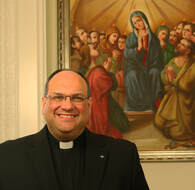
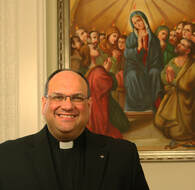
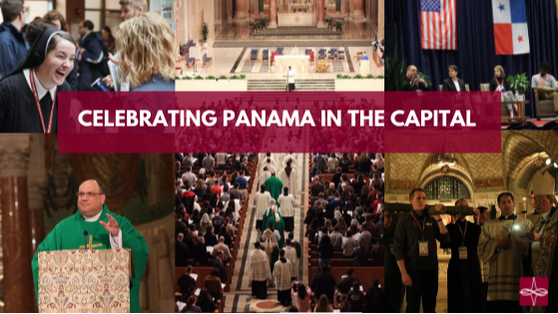
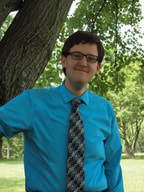
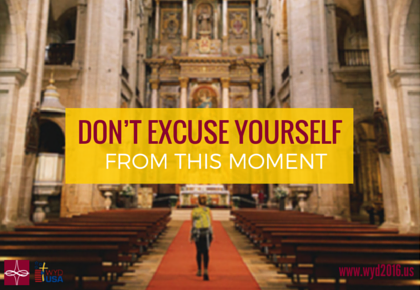
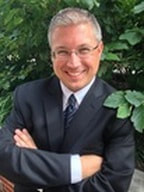
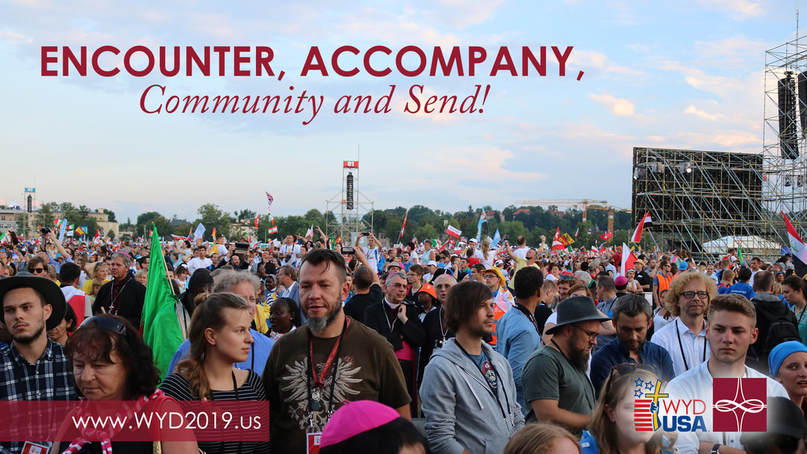
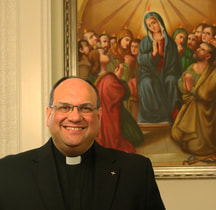
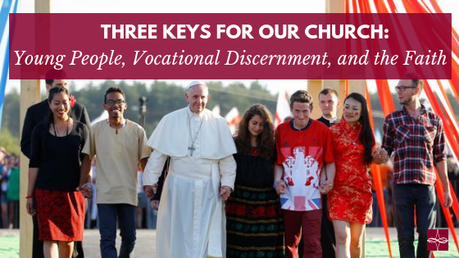

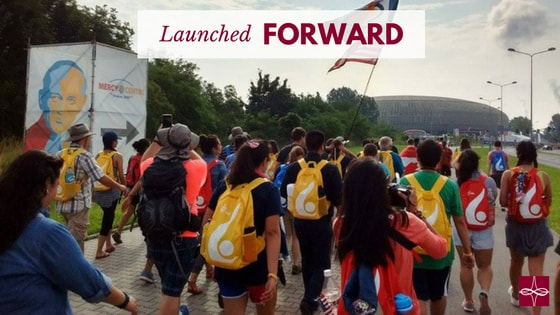
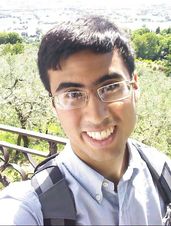
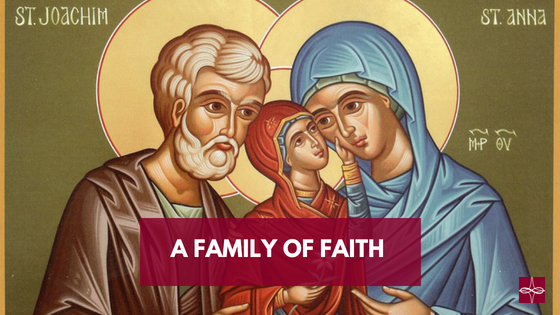

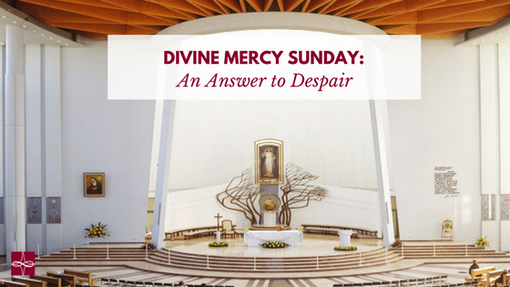

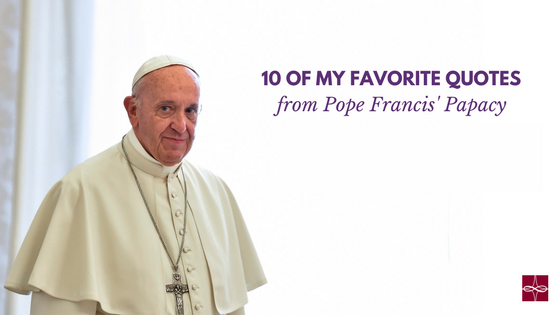



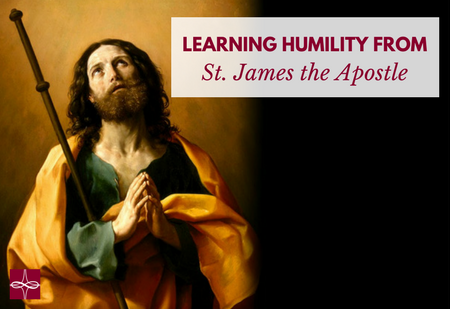

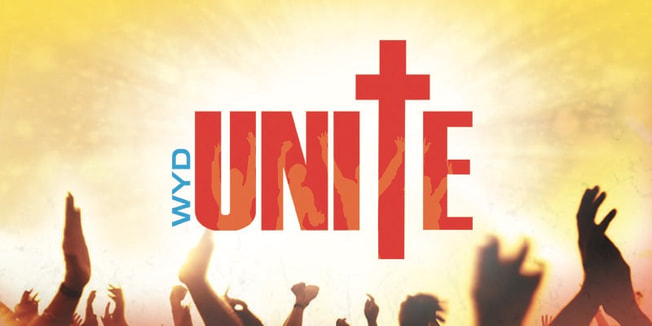
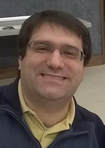

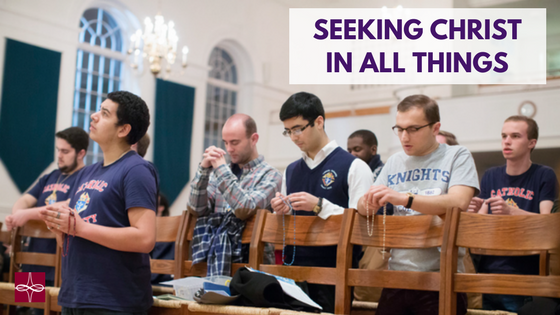
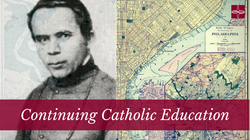
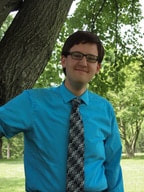
 RSS Feed
RSS Feed